|
Gossip is so well integrated into mainstream society that many books, entire sitcoms, and whole movie plots are based on it. It is often considered an acceptable guilty pleasure and even has its own lingo. Spill the tea, dish the dirt, buzz, tattle tale, rumour mill, dirty laundry, back fencing… you might have even more coming to mind right now! While many revel in it, many also quietly feel uncomfortable with it, have suffered terribly from it, or struggle to curb it. It can stealthily slide into conversations or a date might be set for a good ol’ chin wag full of it. A number of years ago, I sat with a woman who asked me for support in smoothing relations amongst her friend circle. She had long identified herself as a “networker” and a “bridge” connecting people she felt would benefit from knowing each other. To this end, she had become a well known name dropper and teller of friends’ personal stories in effort to portray commonalities and a sense of familiarity. While some great community had been cultivated, so too had animosity amid a wealth of gossip. Prior consent was not sought, judgements came without refrain, and some very big hurts were afoot. I pointed out just how much of her conversation consistently centered around other people. I will never forget the moment of shock I had on hearing her reply, “If we don’t talk about other people, what else is left to talk about?” My response? “You.” Focusing on our interests, experiences, dreams, plans, even our mundane daily thoughts and activities is a wealth of safe discussion for a habitual gossiper that also allows friends to know each other better. She had been attending a self development group with many friends there, those shared experiences naturally offer plenty of fodder for conversation, but the idea came as a new revelation. And so this is where the seed was first planted for this written offering, “Living without Gossip” and the concept grew on me more and more as years passed being a group facilitator and spiritual mentor in a small town. I was determined in challenging situations to hold proper confidentiality boundaries within tight knit circles meant for processing life challenges and personal revelations. Later, my own needs for safe and integral processing amid direct sabotage attempts and public reputation slander, provided even more opportunity to find and hold firm to a line of ethics in conversation. Even now, periodically I am asked to write on this as gossip so often runs unchecked, sometimes even unnoticed, and it can be hard to halt as both speaker and listener. Let’s begin with identifying gossip. One might think it obvious, and yet it can be oddly tricky to discern when we muddy the waters with categorising its many forms and intentions, trying to place it on scales from friendly to harmful or guage between public and personal information. We all know too well that what one person considers okay to discuss, another may not, or how quickly what begins as casual and friendly slides into judgements or embellishments. When we remove the urge to distinguish “safe” from “inappropriate”, gossip becomes very easy to define. Most concisely, gossip is any talk about someone who isn’t present. This includes casual catch ups and good news as well. Yes, any talk about someone who isn’t present. Why is “good stuff” still gossip? Someone close to me has been an excellent teacher in this regard, standing firmly against their siblings for the right to tell their own business, to whom to tell it, when, and if they wish to. Refraining from discussing another person honours their privacy. If we are directly told something exciting, we might ask them, right then, if they mind our sharing with mutual friends when we see them next. Fiercely guarding even good news has also been applicable in my own life as a group facilitator bound by confidentiality. Ensuring information and stories shared with me always belongs to the teller, even when told outside of formal groups or sessions, not only protects their privacy but helps people feel more comfortable with trusting they can be honest, vulnerable, and raw in their personal workings with me. Among friend groups, people may have their own reasons for sharing discriminately and our telling of news in advance of their choice may also rob them of their joy in letting friends know what is good and exciting in their lives. Holding ourselves accountable in this way allows the people around us to deepen friendships, be more open, and experience a level of safety they may not find elsewhere. Navigating sticky situations There are two common situations where we may feel put on the spot and wish for a graceful, but clear and firm way out of gossip in action. The first is halting gossip being spoken to us. The second is when we are prompted and tempted to enter into it ourselves. Every situation is different and each friend we may be speaking with also has their unique ways of expression and response. We have our own comfort levels and fluctuating energy for holding boundaries at any given time too, and so some personal crafting will need to be done and perhaps a little attention given to the art of congenial conversation, both in advance as well as on the fly. Sometimes a simple redirect is all that is needed, an “I don’t know about that, but how did your thing go the other day?” type switcheroo. Or you might find a full conversation needs to be had with a particular friend with whom gossip chronically arises on how you are wanting to curb the habit and to expect some changes from you, while requesting they also catch themselves when it arises. This works well as an “I” statement even when it is the other person who consistently serves gossip at the table. Bringing ourselves back to conversations in the past where we struggled or felt uncomfortable is a great way to work on new responses to have on hand for future needs as well. Choosing and memorising simple responses to common conversation pitfalls can also be helpful. Some of my favourites are: ~ “Perhaps you should ask them directly?” ~ “It’s not my place to say.” ~ “They may appreciate a call from you.” ~ “I’m not comfortable talking about other people like this.” ~ “It is best we let them find out themselves.” ~ “This feels like their private business.” ~ “I’m here to hold space for you, but I don’t want to know who the other person is.” I know there are times when we are absolutely bursting with joy over someone’s news (a baby after a period of infertility, landing their hard earned dream job, completing an enormous accomplishment) and feel we need to share and release the energy of it. Sometimes this happens too with shocking or hard news and events shared in confidence or otherwise learned. It can feel like we have to “put it somewhere” and “get it off our chest”. For both of these situations, we might first try shifting the energy of it out of our bodies and thoughts with movement like dance, chopping wood, or a brisk walk. We might spend time in our favourite nature spot. Hold a fire ceremony to transform it or a cleansing ritual to release it. Even writing about it to get it out or blowing the feelings it gives us into a stick to float away down a river. If all else fails, or we must seek the advice of another on the matter, speak of it without names or identifying details. There are occurrences where we might need a supportive ear as we process events or dynamics involving other people. A myriad of situations can arise where we could use a second opinion on how to interpret something, find a new perspective to reframe things with, or to give us an honest unbiased take on our gut instincts or our reactions. Talking of our problems out loud with a professional or finding a friend to act as a “sounding board” can be a huge support in finding how we truly feel about something or gain new perspectives. We may find deep healing in simply being heard and our experiences validated as real for us. When we are sharing our internal thought process with regards to a specific person, if we have a professional to talk to, they likely have training in conflicts of interest, how to hold strict confidentiality, and are bound by the ethics associated with their field. Much of the time however, it is friends who we turn to. If these friends know whom we are speaking of, we may inadvertently colour their opinions of that person, put them in awkward positions, give fodder for gossip or slide into it ourselves while feeling hurt or resentful. This can really run amok in small towns or friend circles. Recognizing this pitfall before speaking and choosing carefully who we process our feelings with is a major step in reducing gossip. So too is keeping attention on our own experiences and considering the other person as much of a non player in our discussion as possible. Their relation to you may be significant, but they themselves? Not so much. This is to say, feeling constantly chastised by your spouse may elicit a different response and conclusion than if feeling constantly chastised by an acquaintance. The topic at hand however, remains the same, our personal thoughts and feelings about it. Not the other person themselves, not, “How can they do this?” or “Shame on them for treating me this way.”. If at all possible, it is generally wise to keep their identity out of it completely if you can. Remembering every person is capable of wielding their own powers of reason, as holding valid inherent wisdom, and being imbued with free will, can also help us navigate tricky scenarios where gossip likes to creep in. Many years ago I worked with someone within a group ceremony setting. During the proceedings they conducted themselves in a manner that I felt was inappropriate and later, some of the people who had attended let me know they had felt similarly. They had discussed their shared experience between them (which may have dipped into gossip if conversation stopped focusing on their own processing and shifted to discussing motivations or character judgements) before bringing welcome and unified concerns to me. As a facilitator, I appreciated their feedback and it afforded me a confirmation that my response to the situation had been appropriate. However, this group had also sought my input on how to let an entirely different friend know they felt it was unwise for them to work with this person in the future. My adamant reply was, “We don’t.” While the actions had been inappropriate and unsettling, no actual harm occurred nor was likely possible given the ceremonial structure we had in place. I reminded them they each in their own wisdom had seen what was afoot and adjusted their boundaries as needed before encouraging them to remember their friend is also astute, can feel out their own negotiations, and sense whom they may or may not choose to work with. It had been an excellent learning opportunity for all of us involved. If their friend asked directly for our own personal experience working with this person, we could share that freely, but to go out of our way and imply that in our opinion, someone might act unsuitably, in a situation where harm was unlikely, verges on slander and most certainly would be gossip. Sometimes we just need to butt out of business that isn’t our own, and watch for any self convincing to act otherwise When We are the Target of Gossip There are times when we are presented with situations that alert us to the fact that friends, families, or even strangers have spoken about us, formed unsubstantiated opinions about us, passed judgements, or plainly shared our private affairs and personal beliefs without our consent. We might even find our personal free will has been manipulated when others have gotten together to affect our prospects through anything from badmouthing to praying for outcomes. Remember, gossip is speaking of anyone who isn’t present, particularly without their consent. It can be a deeply hurtful experience to find we have been the subject of unwanted conversation, particularly when there are falsehoods spreading amid our community. While a few rumours or misrepresentations are absolutely hurtful, they are often remedied relatively easily when we have an audience willing and open to hear our truths. Even better, if we can do so while stepping outside of the drama triangle ourselves, we can more quickly move into personal healing practices and lick our wounds right again. Gossip may come from an individual, a collective, or both when one person influences a group such as a clique at school, colleagues at work, or our own families to follow their lead and spread misinformation or embellishments. In the hardest cases, it is a concentrated effort with intent to sabotage our personal or professional lives. Unfortunately, some of us have endured prolonged targeting, sometimes at the level of attempted or accomplished complete ruination. This is when gossip becomes bullying, slander, and harassment. This is a broader topic than is being discussed here, but the same response techniques are still helpful in situations where gossip becomes harassment. As before, each scenario has its own nuances and details, so finding how to proceed may look differently for each of us or each time it occurs. The guiding principles that I strive to keep top of mind are, to speak truthfully, minimally, and with integrity. Some helpful tried and true suggestions to feel out: ~ Not responding while feeling urgency or active anger. My personal preference is to wait 3 days whenever possible. This allows me to sift out what I truly want to say and speak it more clearly and calmly rather than as an explosive reaction to hurt. We may feel hurried to squelch gossip about us, but usually doing so effectively rather than immediately has a greater effect. ~ Avoiding tangents helps keep my message clear and direct in the listener’s mind. If we are seeking to correct misinformation, we make this easier by being concise rather than emotionally rambling. ~ Focus on ourselves, not the originator of the gossip. Let’s face it, it is really tempting to point out hypocrisy and projection or to tit-for-tat vent character judgements or secrets when we feel shocked and hurt. Focusing on how their gossip makes us feel and correcting factual falsehoods helps to keep us from falling into the very behaviour we are rallying against. Professional Settings Being a facilitator, therapist, group leader, councellor, or other professional in a community setting brings its own flavour to the same two common situations of feeling on the spot and wishing for a graceful and clear, firm way out of gossip in action. Both halting gossip being spoken to us as well as when we are tempted to enter into it ourselves. There is added responsibility and often a more intimate knowledge of personal information. The volume of private content may be vastly increased with intricate cross overs and heightened relationship dynamics to keep aware of. We may be tasked with conflict resolution between members of a group, find ourselves holding space for more than one party, or be directly asked to give professional recommendations for someone we personally would not recommend. Professionals may also find they have a greater need to process sue to the intensities shared with them at work while simultaneously finding themselves with very limited safe spaces to process. It may be helpful to: ~ Be clear with ourselves and others where conflicts of interest lie or when they suddenly appear mid-process. This is an area to become very comfortable with not accepting or disengaging from the assignment at hand. ~ If we know the person being spoken about in a space holding or counselling session, try separating the person from their behaviour. This way we can detach from urges to form judgements, it allows us to stay present with the person in front of us, and helps keep the conversation on topic without falling into gossip. Separating the person from their behaviour may also give clues to support with while preserving our regard. ~ Maintain extra diligence in tending to our own well being and shifting residual energy from what may have been shared with us at work. Any and all self care techniques, energetic hygiene practices and spiritual protections and cleansings that we might employ formed into a regular routine will help keep things flowing rather than sitting gnawing at us. Likely a combination of body work, energetic purging and refilling, healthy mental habits, and importantly, safe spaces and best practices for any of our own verbal processing. ~ Similar to the prompt above regarding navigating tricky situations, we may wish to establish and rehearse carefully chosen responses for when challenged with maintaining professional composure. We might practice saying things like, “You may find a more suitable match with (another practitioner)” or “I’m not at liberty to share details of my experience.” even “I am not comfortable with giving them a recommendation.” That last point leads me to touch on a topic for another article I intend to write at a later date; abuses, sabotage, manipulation, and public slander within spiritual communities among both participants and leaders. Though the field seems vast and currently quite popular, many who spend time in these circles find just how small they tend to be. Sometimes that allows us to beautifully support clients and direct inquiries to expert specialists, yet it also can cultivate a hidden layer of dog-eat-dog mentality. It lends itself well to blurred lines between friends and work relationships which can create deep animosity, and colleagues easily find themselves at odds or in perceived competition with each other. When gossip is present, there is an additional pressure for facilitators regarding their choice of response as they are looked to by their community as a model for conduct. Meanwhile students, mentees, or members of self development programs and spiritual gatherings may be told they aren’t “doing their work” or need to “raise vibrations” if they feel targeted or witness reputational tarnishing occur. They may envision themselves without enough credit to address a leader or member acting inappropriately and it can feel as if help is scarce while surrounded by those we put our faith and trust in. I know from personal experience many years ago, this can be incredibly challenging. I worried that correcting misinformation and addressing a smear campaign against me would be received just the same as the slander itself. It can prolong the situation as well as the healing process. After failed attempts to address and halt this behaviour directly with the person, my choice of action was to stop associating with them and patiently keep my own integrity intact while allowing others to come to their own conclusions over time. Again trusting the innate wisdom of other people to find their way through such a tricky situation as it felt everyone knew everyone. It wasn’t my job to convince or convert. This works well too for any hostile person on a smear campaign against you, be they spurned friend, spiteful former partner, or estranged family member. It is a painful process that is not in the least bit easy. Thankfully there is now increasing awareness with specific supports and resources for people targeted within spiritual groups or other ruination attempts, along with greater help in finding safe ways to address these problems. Potential Gossip Pitfalls Having a clear idea of when to keep alert for potential gossip gives us a reliable identification system when our emotions get in the way of clear decision making. You might create your own list, but here are a few to get started: ~ when someone brings misinformation to us (about another person or ourselves) ~ if we are eager or curious for news about another person ~ times we wish for distraction from our own problems or desire entertainment ~ attending or facilitating groups bound by confidentiality, especially in a small town ~ verbally processing an event or dynamic with a mutual friend ~ when a smear campaign is afoot Handy tips to practice ~ To hold ourselves accountable, it is best not to inquire with a mutual friend how another might be doing, but to reach out to them ourselves instead. Likewise, redirecting common inquiries of “How is so-and-so doing?” with suggestions to connect with them directly. It may even need to be said a few times over if inquiries persist. I have found that when I know a mutual friend is struggling and another asks after them, mentioning they might enjoy a call or message is a soft way to not only close the door on potential gossip, but perhaps open opportunities for their support at the same time. ~ If you feel confident in your ability to hold strong confidentiality boundaries, redirecting a habitual gossiper to speak of themselves can be helpful. This works well too when we aren’t sure that sharing our own personal stories or musings will be safe with them. Generally people like to talk about themselves. If we can listen well and ask poignant questions, we may avoid openings for gossip to begin. ~ If weaning off of initiating gossip, practice not dropping names or mentioning any identifying details. Keeping those parts vague is a great step toward safer conversation. We can model it and encourage it when speaking with friends who habitually gossip as well. ~ Pledge to honour the privacy of celebrities when tempted to read tabloids or watch exposès created without consent. They will never know of course, but it creates a habit of holding a line against invading privacy. ~ An excellent rule of thumb for those who attend or facilitate groups where personal stories are shared, even circles without explicit confidentiality policies, is to never bring up anything from a gathering other than our own personal experiences there. Even if speaking to someone who had been present and including what they themselves may have shared within those sacred spaces. Circles such as this usually spend time establishing feelings of safety first and the people there have prepared themselves for vulnerable and private working. Suddenly bringing up aspects from that time while say, in the school parking lot or even on a coffee date, can shake trust and reactivate any trauma responses. Possible Exceptions I like to leave space for sharing praise and boosting another’s great accomplishments or talents, but I aim to do so cautiously, discriminately, and only when those accomplishments or talents have already been made known to both myself and the party I am speaking with. In a world so filled with competition and self centric presentation, elevating what is good among our community members can be a sweet medicine for the soul as well as a potential practical support. This might look like a mutual friend publicly sharing a rendition on social media and a conversation later flows along the lines of “Wasn’t their song so beautiful and deeply touching?” and then into how their expression made each of us personally feel or how we might be inspired by them to follow our passions. It has a very different feel than showing another person someone’s private video and passing remarks on their performance. It might also be gushing about how happy you are for a friend’s joy after their engagement was posted in the newspaper or announced at a family supper. In these situations, the other person’s news has already been made readily available to the other party and we are sharing only our uplifted thoughts and feelings generated within us for their success. The other exception is when we have first hand knowledge of potential harm or violence to another. In some countries it is actually our legal duty to report to authorities if we believe someone may harm themselves or another person. Myself, I also include direct knowledge of slander against another when it is at the level of unfounded, evidenced, public, intentional, reputation or professional career ruination as it may help them with their choice of action, especially if they need to involve protective authorities or take legal action. It may also be imperative to let another know they are in potential physical or mental danger as well. This does not include telling friends someone lies, acts with poor judgement and uncaring ways, or has previously struggled with addiction, not even that they were unfaithful to their partners in the past. No. Pointing out escalating harmful behaviours toward someone being targeted if they are unaware of increasing potential for harm, calling a friend to warn them of active impending danger, letting a child know what a convicted predator in the neighbourhood looks like, seeking professional counsel or support group help for living with someone struggling with mental wellness, addiction, or violence, Yes. These are direct and imperative safety concerns where names are reasonably spoken. Whatever your relationship with gossip is, however challenged you might be, from curbing the urge to repairing the fall out after dishing it, recovering from being a target to newly noticing you do it, I hope you have found something of value to consider here. Ideally a few practical tips to employ or at least a nudge toward a new perspective. May we hold our company well and keep care. If you found this article supportive, please consider sharing, "liking", or commenting as a way to let me know and to increase the visibility of this piece.
Should you wish to support more free articles on personal practices or self tending work, please feel welcome to join the Writing Support tier on patreon by pledging $5/month or send a donation via PayPal. Thank you truly.
1 Comment
Consent in healing practice and spiritual communities is something that I bump up against very very often and yet I find is seldom spoken about. If it is, it tends to be short, vague, and encompasses the moral absolution of simply adding "for their highest good" before carrying on. To me, this conversation is essential. Not only for practitioners, teachers, and facilitators to have with those they work with, but for All Of Us. It is relevant in circumstances we regularly encounter in our day-to-day, everything from blowing out birthday candles and wishing on stars to social media pleas and conversations over tea. It plays out in a variety of ways, but here are a few common scenarios that I encounter:
I speak a firm counter stance on this and lay down strict parameters for those I am working with. There are only two.
The part I really want to speak to however is the hard truth that we can't assume to know best simply because our compassion is engaged. Humans are incapable of fully understanding the complexities, intricacies, and ramifications of any given event, particularly as time unfolds or the different realms it may affect. Heck we can't even see a full range of light and colour. Not even hear a complete array of tones and pitches. Yet a common consensus appears to be that we can freely impose our will over another when we think it is for their "highest good" or that asking the person's "higher self" or "spirit guides" for permission makes it okay. Perhaps even we double check later with that person to find they appreciated it, providing fuel for justifying this habitual response. Myself? I believe this way of thinking to be out of integrity and dare I say, downright sloppy. Let me explain by sharing a few true stories:
You may be familiar with the story of the man who helped a butterfly emerge from its cocoon. Essentially the butterfly could not fly because its wings had not developed the needed strength provided by breaking free on its own. I am not one to "love and light" anyone's hardship, or tell someone in the thickest dark night of the soul that "everything happens for a reason", but I also wont deny someone the transformative insights or strength of character that can only be found in our broken places. Who am I to impose my Will on another person's situation without their knowledge nor direct consent? No matter how rotten, no matter the suffering, how would I know that isn't the divine plan, pre-chosen soul path, or the exact poison needed to deliver the most potent medicine? What if our collective prayers inadvertently remove a stepping stone leading to their best life? most suited partner? invaluable wisdom? Is it okay to infringe on another's free will because we tag on "for the highest good"? What if their higher self says Yes but they themselves say No? Are we 100% certain we haven't projected our desire to fix into that divination? Is it enough to go against a conscious dissent? What can we do? Inquiring if someone is open to receiving your prayers or healing intentions, even if you have been friends for decades and you've done it a million times, shows respect and integrity. Every situation is different and what may have been okay before may not be this time. If it is someone you don't know well, or has beliefs other than our own on such matters, pay attention to the language used in asking for consent. If they think healing energy or divination readings are too "woo-woo" or aren't real, see if an equivalent that makes sense to them can be found. Even if it is something like, "Do you mind if I imagine you free from this challenge?" or "Are you okay with me meditating for an answer on this?" It might be inappropriate or impossible to ask for consent leaving us with an uncomfortable feeling of "doing nothing", and sometimes we just have to sit with that. I like to check in honestly and ask myself if I am able to trust in knowing they have their own wisdom, their own senses, and their own journey in a matter or if I might actually be doubting or accidentally being condescending toward their natural abilities. Simply regarding, noticing, and appreciating someone is a powerful act. Quantum physics shows us the impact an observer can have in situations of all kinds from particle waves to ph levels of water. We aren't doing anything beyond witnessing something already present like their tenacity or the light of their life force. What about the exception I mentioned for young children? I recognize that small dependent children turn to their parents for all of their needs and it is up to us to draw on our skills and supports to do so. Whether it is applying aid during an illness or keeping them safe. It is expected of us. Wanted. Needed. Prayers and healing work included. I say "limited exception" because in my experience folks tend to want to push those boundaries toward pubescent and full grown adult children or stretch into areas that are life or behaviour controlling. Removing a troublemaking friend of theirs during a fire ceremony is different than praying for their ability to make wise choices. It can be exceptionally difficult for parents to honour a child's autonomy, resiliency, and need to make their own way through the dark woods. It can be hard to know when it is right to hold their hand, when we should stand beside or behind, and when to plain stay out of it. Clarity is good. Ask them. This has been a long one. Much gratitude to readers who have made it this far. It is an area that I am passionate about, aim to follow, and am quite firm on since it comes up so often in my work and gatherings. Of course it is not always appropriate to broach in the heat of a moment either. It was time to put it all in one place and share out from here. Today's podcast guest, Juliette Woods, is an incredible mix of mystic, mother, spiritual guide, creative, and earth spiritualist. In our conversation we talk about...
We cover a lot of ground in this long-form conversation that feels like a lengthy stroll down the beach on a drizzly day...picking up wise little stones...giving the selkies a wave hello and wink or two...remembering the seal skin tucked away in our own closets. To support this podcast : You can engage in reciprocity with this show by supporting me - Amber Samaya - on Patreon: https://www.patreon.com/ambersamaya  I'll Have What She's Having! is a visionary interview-based podcast highlighting the real-life experiences, embodied wisdom, life path stories, and inspirational creative offerings of WONDROUS women. This podcast invites women from all walks of life (and men too!) to meet at the beautiful intersections of our unique lived experiences. Joining together in a quantum circle for laid back, fireside, magic-at-the-kitchen-table, no-holds-barred JUICY conversations about everything from creative projects, community innovations, business, sex, intimacy, relationships, motherhood, grand adventures, dark nights of the soul, self care, intentional life ways, sacred practice, necessary rebellion, and those hilarious *this-legit-happened* stories that will have you laughing. We hope you'll feel at home. That you'll laugh enough that it'll count as an ab workout. That you'll heal and soften a little bit. That you'll feel deeply connected. And certainly, that you'll celebrate each other. Welcome to a podcast where conversation becomes medicine. For more episodes: http://ihwsh.buzzsprout.com/ You can connect with Juliette in the following ways:
Show notes:
Music:
Stepping into Ceremony When we are well prepared and present to intention, we set the stage to safely step back and allow healing to move through us without trying to control or struggle toward a perceived goal; opportunities unfold to perceive medicines and divine wisdom greater than we can imagine. 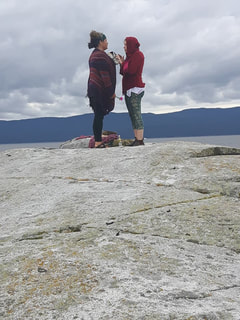 An Initiatory Experience An initiation marks a distinct time of "before" and "after". The kind of experience that, at its extreme, will feel like a complete life over-haul, almost like we have been reborn or achieved a new level of depth/height in awareness. Everything is somehow different or has shifted in a fundamental or cellular way. Often it is a rite of passage, deep ceremony, intense personal medicine work, vision quest, or healing event that creates a significant shift in the way we relate to and experience the world. It steps us into a new phase of life or welcomes us into a community previously unavailable to us. It applies also to unplanned events like serious illness, accident, or tragedy, as well as natural life stages such as birth, puberty, menarche, labour/birth/parenthood, coupling/uncoupling, menopause, eldership, and death. As I have learned it, there are 3 distinct phases to an Initiation. Severance. Threshold. Integration. Others may have different names or words to describe them, but the essence seems consistent in my experiences and observances so far. Severance The preparation phase. This is the lead up to the experience, and is when the healing work actualy begins. Sometimes as early as the moment when we commit to the opportunity. We go through a phase, consciously or not, of acts of letting go of our life as we know it, saying Goodbye to all that is familiar, releasing our grip on the anchors that make us feel stable - patterns, beliefs, relationships, perceived goals and desires, daily constructs, ways of relating, ways of being, ways of thinking - and cutting all ties to the way things are. If you recognize you are in the Severance stage, you can support and deepen this process by:
Threshold This is where we cross over from the "before" to the "after". It is the Experience that changes us or the culmination of experiences that leads us to a pivotal threshold or doorway to step through. It may be marked by ceremony, ritual, vision quest, dark night(s) of the soul, a period of deep healing, or it may not even be fully recognized while in the thick of it - particularly when without the witnessing of community or when the experience(s) are viewed as trauma without resulting gifts. When in this stage, you might support and deepen the experience by:
Integration Often considered the hardest part, and sadly too often overlooked - integration occurs when we are able to Return to our usual life and keep the gifts we have acquired intact. We are challenged with bringing our internal shifts outward to affect change in our day-to-day living and resist falling back into old ways of thinking, reacting, and being. Many times this transition isn't easy, might be messy, and perhaps feels a bit chaotic as things shake up in order to fall into more harmonious places. Touching in with any community, elders, or teachers that held us through the Threshold phase can be a wellspring of anchoring resources. When in this stage, you might support and deepen the experience by:
A few years ago I wrote some practical, hands-on, tips and suggestions for integrating the medicines from the Threshold, and bringing all of the unseen, personal, inner work Out into our mundane living experience. If you would like more on the Integration phase, find yourself post-ceremony or have recently undergone a personal healing session, please read "Integration ~ the often overlooked time after soul-work".
If you would like personal and direct support as you move through any of these stages, you are welcome to send me an email at [email protected] or book a consultation. There are many ways to “be of service” to our communities that don’t involve extensive training, one-to-one healing sessions, or even a full-time dedicated practice, that are incredibly powerful and very supportive. One of these methods is by tending to a Community Altar. This way of holding space for others on their journey through life and healing is easily integrated into even the busiest lifestyles and from what I have experienced, can become a highly requested form of support. 7 Steps to building a Community Altar practice: 1.) Consider where your Altar will be and the length of time it will remain active. Helpful questions might be; Will your Altar be indoors or outside? Are you ready for a permanent feature in your home or will it be created only for a short gathering? An Altar is created with careful energetic intention on a designated surface - so choose a location that is easy to access and encouraging for you to tend to. Perhaps more than one person will actively tend to the Altar on behalf of the community - you get to cultivate this practice to suit your needs as well as those seeking to be included! 2.) Ponder the essential quality the Altar will be designed to represent and radiate. One might choose to support people’s hearts, invoke the sense of being held in the hands of divinity, promote their safety, clear ancestral wounds, encourage physical health, or tend to a need in the community that you identify with and relate to from your lived experience. 3.) Every item that makes up the Altar will be carefully selected and geared to contribute to the chosen energy and purpose. Consider them as energetic or spiritual ‘power houses’ such as specific crystals, images of deities or photos of deceased relatives, stones from significant and relevant places, plant medicines or dried herbs, all of which carry or support the chosen intention. An Altar brings together the individual energies of the objects with your aim to create a unified energy source that continues to “work for you” once set. 4.) Decide how you will represent people who want to be included. You might light a candle on their behalf and speak their name for long distance support or if they will be physically present you might ask them to bring a stone, photo, or personal item that resonates with their individual energetic imprint. 5.) When you have spent some time becoming familiar with the energy of the Altar, are clear on its intention and comfortable with tending to it; extend the invitation to your community to be included. One might offer to individuals who are already asking for support, post a general invitation on social media, or verbally encourage participants at a gathering you are offering. 6.) Be sure to hold the work your Altar is doing with utmost respect. Do not allow others to put random objects on it, keep it clean and organized, spend time in quiet reverence there, and perhaps move things around or change up the items to keep the energy fresh. You might sing devotional songs, make offerings, or speak invocations and prayers while tending. 7.) It is important to remember that as a working energy source, there are also times of rest needed. We can provide this rest by periodically laying a cloth over it and by dismantling it when no longer active. Blessing and cleansing the items with sacred smoke is also something to be mindful to do when the energy begins to feel “stale”. If out-of-doors in a public area, be sure to thank and close the Altar by removing personal items after each time of tending. Tips to remember:
An example of a simple yet powerful Altar as an inspiration for your own might be to dedicate it to the "Good Neighbours", and include a central rose quartz sphere representing your love and appreciation for house sprites. Perhaps a fairy quartz in included with the points radiating outward and interlaced with small images of Fairies that are particularly attractive to you. You might decide to work with the creative, impish energy of this space by reciting a daily invocation stating your desire to connect with the Fae, Brownies, House Elves etc on a more reciprocal level. This could be helpful in homes where items regularly, and inexplicably, go missing or when it feels like your house is "playing tricks" with you. Visitors to your home who would like the same intention could be welcomed to leave shiny coins, milk, oats, or chocolate as gifts on the altar when they come for tea with you. Another example might be an altar for our Grandmothers, perhaps created on a piece of lace at a Samhain gathering. Adorned with an inherited favourite tea cup, some black and white photos, and a brooch your Great Great Grandmother wore. These would establish the connection to matriarchal lines and brings in their energy. If the intention is to heal a history of abuse for our Ancestors, including crystals that transmute dense energy, repair heartache, and impart strength placed with the intention of safely surrounding the Grandmothers creates a powerful healing purpose. Guests could then bring their own photos, heirlooms, and written prayers for healing their lineages. You might be surprised how many people ask to be included and share with you a real, felt sense of being supported. The simple act of someone caring is a profound sentiment let alone the supportive medicines included with, and invoked by, your Altar practice. It's free, takes little time, creates a strong feeling of community, and isn’t impeded by distance. I invite you to begin and have fun! If you would like more in-depth wisdom to explore about Altars & Shrines, the differences between the two, their purpose, nuances, and best practices, it is a topic we cover during the first month of the Return to Reverence immersion program and continue to work with throughout.
Registration opens each June and we begin each October. Do you have Altars ALL over the house? Here is something to consider that is often overlooked. This video is a beautiful example of how the medicine gifts we bring to our Healers, Teachers, Facilitators, and Practitioners supports their work continuing for the community. The dollars we pay is the energy exchange to keep them and their families alive, housed, recognizing their years of training, skills, and continued education, while compensating for their time - much of which is unseen by their clients, students, or members. Medicine gifts, such as the sacred Peruvian tobacco used in this clearing, may be the only way to ensure certain ceremony or healing work is done. In many lineages, the facilitator is never to purchase such medicines, it must be grown, harvested, or gifted. Such gifts also honours their lineage, their teachers - both spirit and human, and the medicine ways themselves. Without this gift of tobacco, this particular clearing and the ceremony to the Airts (directions) before it would not have occurred. It is a blessing to the community to receive such, and a sweetness to me to be entrusted and supported in this work. Many of the flowers I use in my offerings, and the herbs used for our smoke cleansing ceremonies have also been gifted during gatherings or even sent in the mail! <3 Don't think this way is only for the spiritual helpers in your community, gift your chiropractors, doctors, massage therapists, professors, mechanics, even your baristas! What would support them in supporting others? What would honour their time and skill? Working intimately with my lia mala (medicine bundle) is a significant part of my personal spiritual practice and energetic well-being. Over the years of offering the Shamanic Living Immersion, I began carrying a lia mala for the community as well. In this way, each member is able to receive energetic clearing and spiritual healing support via my tending to this bundle.
It is treated similarly to my own, albeit holding different contents. It is brought to sacred places, opened to the healing elements, offerings are made, medicines added, and receives the energy stream of traditional shamanic techniques. It comes with us to each circle and session the SLI members might benefit from. They are welcome work with this energy source long distance or held in their laps as needed. Working in this way also supports Myself. Before I had received the dream telling me to create one for them, I had been navigating the effects of a large number of people very often "reaching out" to me in unseen, but very real, ways. Healing work and support was being asked of me throughout each day and each night, even into my dream time as members moved through their deep healing processes. Community outside of the immersion program also call on me in this way and I knew I needed to find more effective means to move this work a little more "outside" of myself. Upon creation, the remedy was felt immediately. If you are a Teacher or Practitioner, perhaps this share inspires you should requests for your energetic attention require a different way of holding. 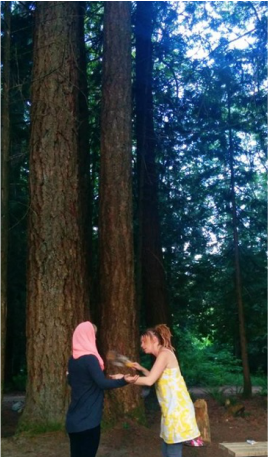 Much of my spiritual teaching practice is based on reclaiming our own forgotten or misplaced cultural practices. The majority of us have been severed from rich ancestral traditions - for all sorts of reasons. Part of this process includes diving deeply into Why a practice/ritual/ceremony is done, cultivating intimate & reciprocal relationships with the plants, animals, elements, and guides involved, plus researching myths, stories, and lore from the lands our families came from, sitting with elders and spirit teachers, reading & listening intently - and importantly - discovering and remedying appropriated methods and terms. This fills our cup of longing for deeper purpose to this living experience. It brings us fertile ground for ceremony, spiritual holding, and of course our own well-being and that of our communities and the natural world around us. When we are intact in this way, we can appreciate the differences and similarities found around the world in a beautiful way, but when this cup of ours is empty - we are much more likely to grab and fill from cultures we witness or who are undergoing their own revitalization process, even when we don't intend harm. I have recently learned the term "smudge" is an incorrect usage unless our ancestry is indigenous to Turtle Island. While many first nation people do not mind common use of this term for clearing and blessing with sacred smoke - many Do. I have begun re-writing my language to reflect my intention of decolonizing my personal practice, my words, and my teachings. It will take time to come across each instance - but I am dedicated to it. Like many of us - my own ancestral traditions have also been decimated. Google and Duolingo is often my "elder" when hunting down appropriate Gaelic languaging to use, along with my human colleagues who are also piecing things together. These things are highly entrenched and often go unnoticed - until they suddenly stand out in blazing illumination. My apprenticeship was focused on women who's ancestry was that of Irish and Scottish descent - and still I learned this integral practice as "smudging" and have used the term for at least a decade. The closest Gaelic word I can find so far is "Slain" or "Slainning". Lots and lots of reference to clearing and blessing with smoke in Ireland and Scotland abound - and yet a word for it is seldom mentioned. I am still on the hunt as slainning seems also interchangeable with fumigating a house, person, or animal for purpose of bugs and germs by burning local herbs and plants. I invite you to join me in this awareness and practice changing our language to reflect this knowledge. Smoke Bath, Sacred Smoke Ceremony, Smoke Cleansing, Smoke Ritual are all acceptable - albeit perhaps focuses on the common modern intention of use purely to clear energy rather than also as carrying our prayers to Spirit or as a blessing by the plants/feathers/shell used. (here's another invitation to take this wisdom-way deeper than is often spoken of) I've also been working on reducing my use of the word "shamanism" and "shamanic" as this too is a term taken from a specific cultural region that my DNA does not originate from. A complication is it is currently recognized for specifically distinguishing from other spiritual ways of being - an important component when offering community services. It most clearly conveys to those seeking to attend or join me what is likely to happen and often is the word searched for when in need. It too has undergone appropriation and a great loss of depth - a westernization of original practice & meaning, now a buzzword added on to all sorts of other practices that may or may not have those distinctive aspects. I'm still working on this one too. I'm incredibly grateful for patience being shown to each other as we all find our way and I hope my share sparks some inspiration to use our words carefully. If you like, it would be neat to hear what sacred smoke rituals are called in your ancestral language! If you don't know - now is a fine time to start the quest! Click here to follow the discussion on Facebook Many have been called to support and respond to the wildfires in BC these past weeks. We have options open to us ranging from donating money to feet-on-the-ground, hands-on help. There are also many of us who have been working with prayers, healing work, and energetic support. Here I share a guided healing response that all of us can experience and contribute with. This technique is mindful of free will, respects the natural elements, keeps our "ego" in check and makes a measurable difference. You can bring his way of working into your day-to-day living, respond to other events, and include it in your practice, daily commute, or community offerings easily and powerfully. Bless! 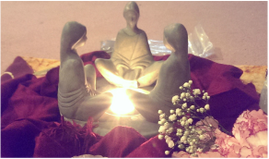 I felt it as a student, I see it with colleagues, and I hold it as a teacher - there is a new aspect to the modern teacher/student dynamic that was unheard of in times of yesteryear. The traditional way of a medicine person, shaman, bean feasa, etc etc was to study with one teacher for a number of years, become an apprentice, endure their and Spirit's sometimes harsh teachings, wait your turn, and integrate the medicines learned over time. Always showing utmost respect, learning as ready to, and mastering one's craft after much diligence. Today those who seek to dive deeper into their spiritual practice have wave upon wave of seductive workshops, a plethora of fantastic books, online focus groups and videos abound. We live in an excellent time of sharing and availability. It's accessible. Great event coordination can happen. One can pick and choose who we like best, and who to give our precious time to. If we don't like what we hear, well, there is a book at the local occult shop we might like better. The trouble is this, this sense of urgency. With so much in our western modern world being instant gratification and with great selection, we can easily lose respect for a Teacher and hurry our learning along - because frankly, most of us are starving for something deep, soulful, purposeful and personal. And then we want to share it and "become" useful. This is how it seems to look...
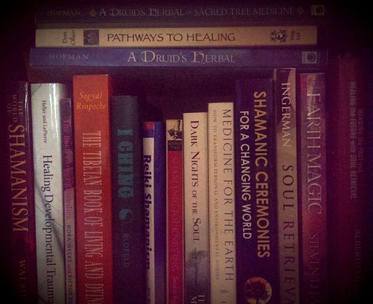 In traditional settings, an apprentice would never think to go to the next village over and ask a different medicine person if they didn't like their teacher's answer. To do so would end the student/teacher relationship and potentially kibosh any future relationships with other teachers. There was a trust in right timing, that things weren't withheld as a power play but for safety. As a teacher, there may be many reasons why a question is not directly answered, or skipping ahead would be discouraged.
Yep, I could have asked another teacher what they thought about it and searched for confirmations. I could have trusted the book instead. I could have trusted what my guides were showing me at the time - and likely would have had a rockier road to getting where I am today. This path is not known for its "smooth sailing" after all. As a teacher, these situations call for delicacy as well as trust. Trust in our work, in the student, trust in right-timing and the ability of both participants. Trust that our ego isn't driving the boat in deciding what should or should not be for another. Trust in the student as a creative, resourceful and whole person. Trust in the balance between holding and guiding a being of free will, or being too controlling or nonchalant about it. And the delicacy to be able to sometimes say No without tearing away at that trust. A most important cue for both sides - is a sense of urgency. When either participant is acting on feelings of urgency, that is a big cue to step back. Whether a student or teacher, I wish you blessings on your slow cooked processes. How to keep ourselves protected spiritually and energetically was one of the questions that came in to me and is a very important area to focus on. Here I share a few tips to help all of us with a good energetic hygiene practice to help keep us protected.
For practitioners, here are a couple additional suggestions: - Spend a good amount of time to set sacred space before work - Be sure to "arrive" mentally and energetically before each client - Resist temptation to work when tired, sick, or emotionally charged - Focus on closing sacred space, thanking guides, and stepping out of work just as much as stepping into it - Ritual bathing/washing before and/or after sessions, gatherings, or ceremony - Be clear with boundaries, what is yours/theirs, and be discerning with client/practitioner incompatibilities. Know who you should not work with - Keep within your skill level. Reach out to or refer to mentors or colleagues if dealing with something out of your league Bringing our gifts out into our communities in healthy ethical ways is part of the Medicine Ways program that follows the Shamanic Living Immersion. If you are keen to work together in this way, you are welcome to find more details on the www.ShamanicLiving.ca website |
Juliette JarvisA bean feasa of Gaelic heritage shares stories & insights from her animist and 'shamanic' practice on the West Coast of Canada. Categories
All
Archives
February 2023
|
Hands up in gratitude and respect to the Tla'amin and síshálh Nations whose traditional lands I live and pray on.
May all peoples receive the deep healing needed for true reconciliation and restoration.
šɛgatčɛnsəm ~ Beannachtaí
May all peoples receive the deep healing needed for true reconciliation and restoration.
šɛgatčɛnsəm ~ Beannachtaí
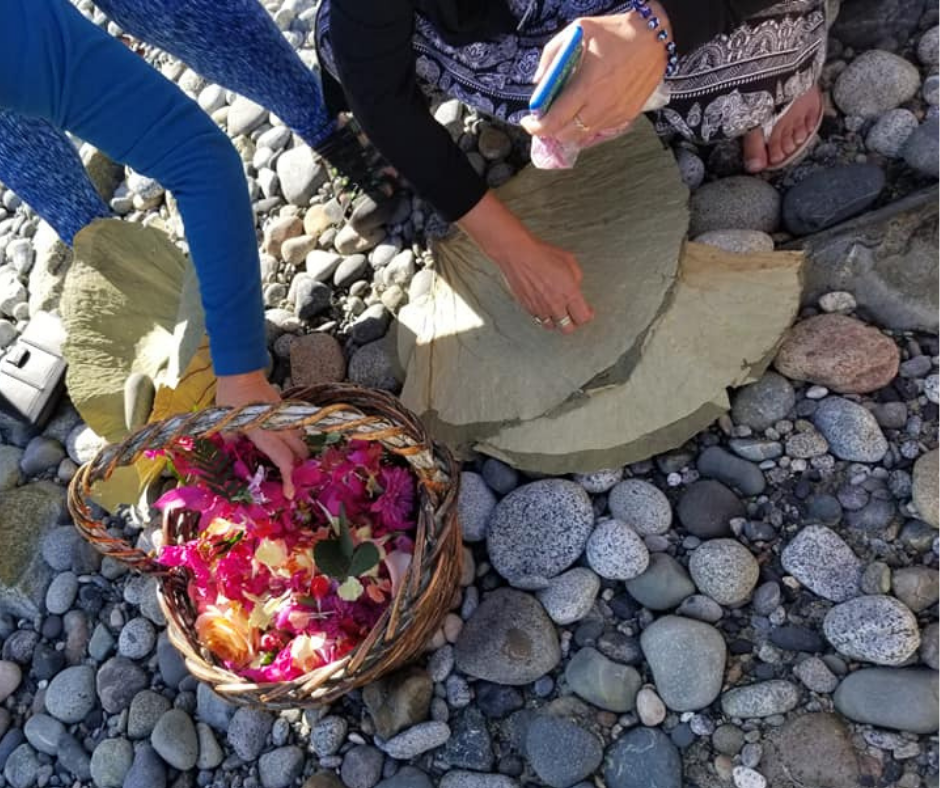
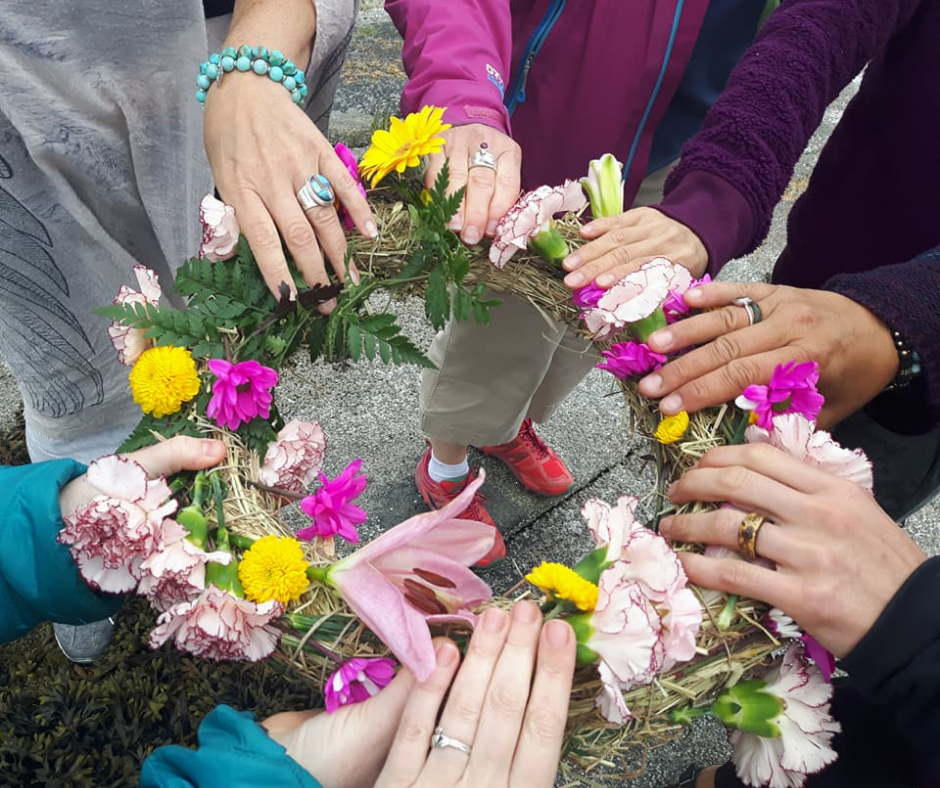
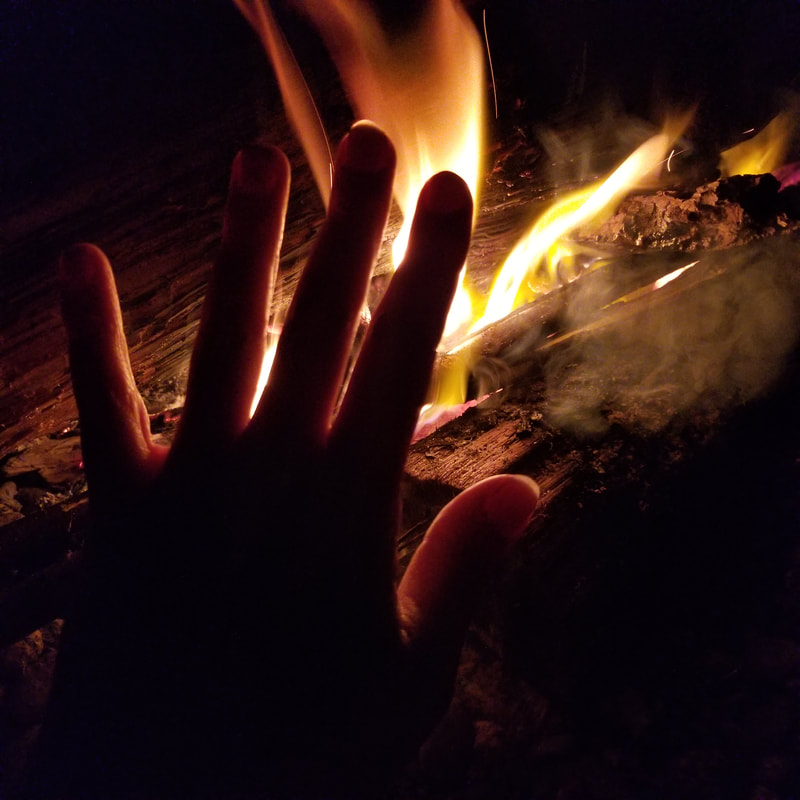



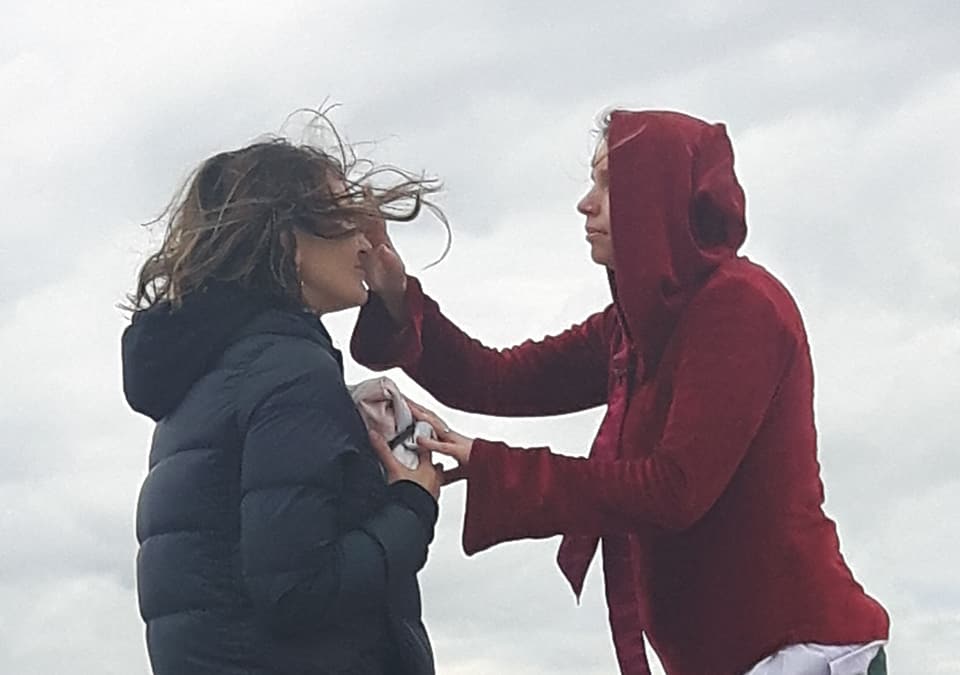

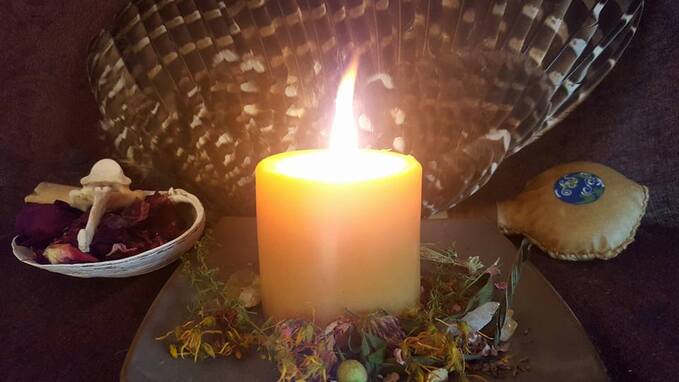
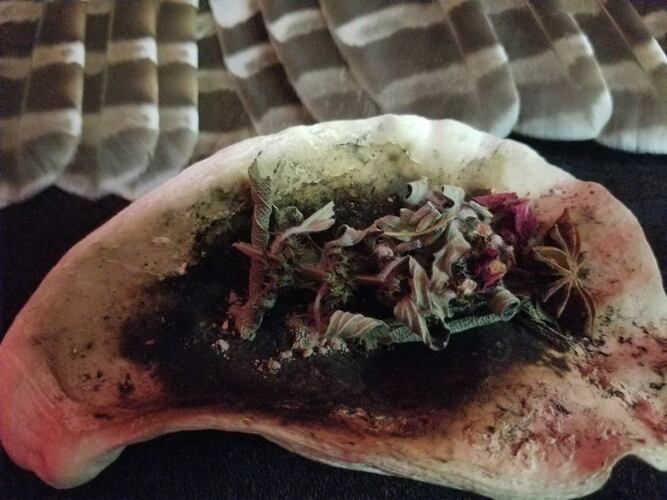
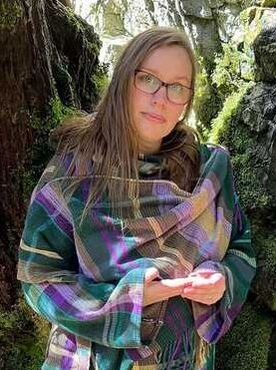
 RSS Feed
RSS Feed

